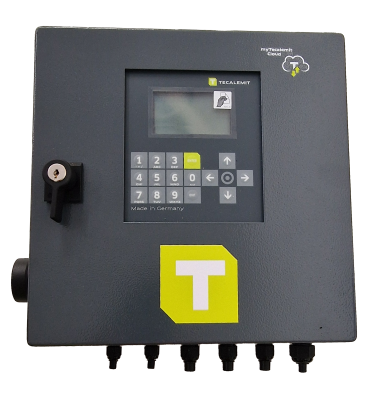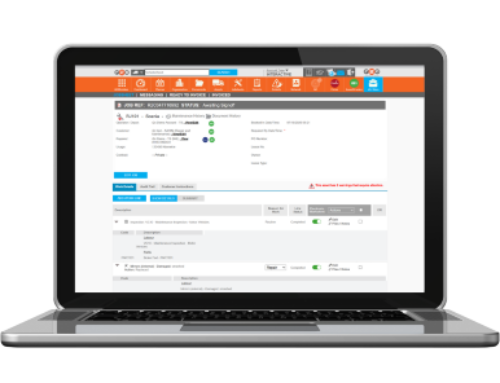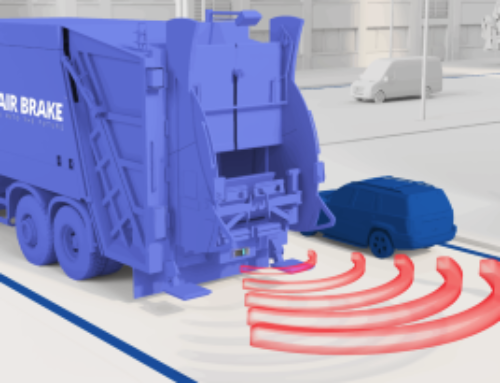Fuelling in focus
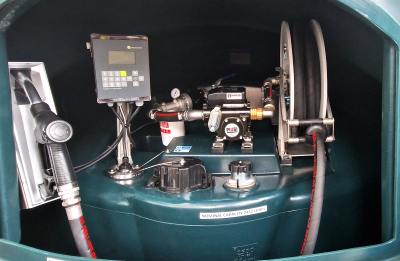 Graham Chamberlain, director of operations at Commercial Fuel Solutions, says fuel management systems are an essential tool to drive cost reductions and efficiency
Graham Chamberlain, director of operations at Commercial Fuel Solutions, says fuel management systems are an essential tool to drive cost reductions and efficiency
In an era marked by volatile diesel prices hitting £1.50 per litre in some regions and rising operational costs, fuel management systems have emerged as critical tools for businesses that rely on fuel to keep their operations running smoothly.
These systems play a pivotal role in reducing fuel theft, maintaining vehicle fuel efficiency, and ultimately, keeping costs down. This comprehensive approach to fuel management is not just a luxury but a necessity for businesses that aim to safeguard their fuel stock and optimise their overall efficiency.
Ever-increasing fuel prices present a significant challenge for business owners. As fuel costs constitute a substantial portion of operational expenses, any fluctuation in fuel prices can dramatically impact profitability.
For businesses operating fleets of vehicles, whether small local delivery vans or extensive national fleets, managing fuel consumption effectively is crucial. Without a robust system in place, the risk of fuel theft, misuse, and inefficient fuel usage can escalate, leading to unnecessary financial strain.
Protecting fuel stock from unauthorised access and theft is of paramount importance. Fuel theft is not just a financial loss but also disrupts operations and damages the trust within an organisation.
A fuel management system is designed to mitigate these risks by providing a secure and controlled environment for fuel storage and dispensing. These systems typically include features such as secure access controls, real-time monitoring, and detailed reporting, which collectively help in safeguarding fuel stock.
Fuel management systems encompass a variety of technologies and practices aimed at monitoring and controlling fuel usage. These systems provide a comprehensive solution that includes fuel monitoring, access control, and data logging. Here’s how each component contributes to reducing costs and improving efficiency:
Access control and security
This is achieved through the use of transponder key fobs, driver ID codes with the added security of additional PIN codes per vehicle or driver. Individual vehicles can be prohibited from dispensing fuel from a storage tank with an incompatible fuel, minimising costly misfuelling incidents.
Each vehicle can be assigned a limit to the amount of fuel it dispenses per transaction or over an extended period of days.
There are a range of fuel management systems available. We rate the Tecalemit HDA as the industry leader as it will also reference the last entered mileage and not authorise a dispense if the mileage is not within an expected mileage range, and allow close monitoring to ensure all fuel use is in line with company policies.
One of the most valuable features of a fuel management system is its ability to monitor and log fuel usage.
The Tecalemit Cloud Portal and optional 4G communication module supplied with a 10-year SIM card will display transactions in as little as 20 seconds after dispensing has occurred.
The Tecalemit HDA system records detailed information about fuel dispensed per vehicle, the mileage covered time and date, order number and operator details.
The Cloud portal can be accessed from any web browser ensuring that the fuelling data is always secure and not lost if there is an equipment failure, the 10,000-transaction memory on the head unit also ensures that any missing data can be recalled with a few simple key presses.
Efficiency and optimisation
Fuel management systems are not just about preventing theft; they are also essential for improving fuel efficiency. By providing detailed insights into fuel consumption, these systems help businesses identify inefficient practices or vehicles that consume more fuel than necessary.
For instance, if certain vehicles consistently show higher fuel consumption, it may indicate a need for maintenance or a change in driving habits. Addressing these issues can lead to significant fuel savings and lower operational costs.
Cost-effectiveness and ROI
Investing in a fuel management system can yield substantial returns by reducing fuel theft and improving efficiency. The initial cost of implementing such a system is often outweighed by the long-term savings in fuel expenses and enhanced operational efficiency.
Additionally, accurate fuel management can provide critical data for financial planning and budgeting, allowing businesses to forecast fuel needs more accurately and avoid overstocking or understocking fuel supplies.
Versatility and scalability
Fuel management systems are versatile and can be tailored to the specific needs of different businesses, regardless of size. Whether a company operates a small fleet of local delivery vans or a large national fleet, these systems can be scaled accordingly due to the 400 vehicle and driver capacity supplied as standard.
For smaller operations, the focus might be on basic monitoring and access control, while larger fleets might require more advanced features such as telematics integration and automated reporting.
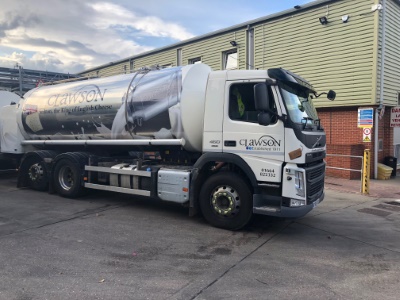 Commercial Fuel Solutions supplied a fuel management system to Long Clawson Dairy, traditional cheese makers. Long Clawson Dairy deliver cheeses across the UK, operating a fleet of 10 vehicles from their base in Melton Mowbray.
Commercial Fuel Solutions supplied a fuel management system to Long Clawson Dairy, traditional cheese makers. Long Clawson Dairy deliver cheeses across the UK, operating a fleet of 10 vehicles from their base in Melton Mowbray.
Long Clawson Dairy logistics manager Paul Taylor said: “Since installing the Tecalemit Fuel Management System in 2022, Long Clawson Dairy was able to reduce the time spent on fuel administration for our fleet by 30 minutes per day.
“When you add that up over a year, it is over three working weeks we get back in person hours per year and that is significant for any business.”
“Previously we would have to manually transpose paper records into the computer to keep track of fuel use and that obviously increases the risk of human error.
“Now I can check how much fuel we have from my desk, and I can create a report instantly to help budgeting, check for anomalies and answer questions from the wider business.”
In conclusion, a Fuel Management System is an indispensable tool for any business that relies on fuel for its operations. By reducing fuel theft, maintaining fuel efficiency, and keeping costs down, these systems provide a comprehensive solution to the challenges posed by rising fuel prices and operational inefficiencies.
Investing in a robust fuel management system not only protects a valuable asset but also enhances the overall efficiency and profitability of a business.
Whether managing a small local fleet or a large national operation, accurate fuel stock management through a reliable fuel management system is essential for maintaining a cost-effective and efficient operation.


